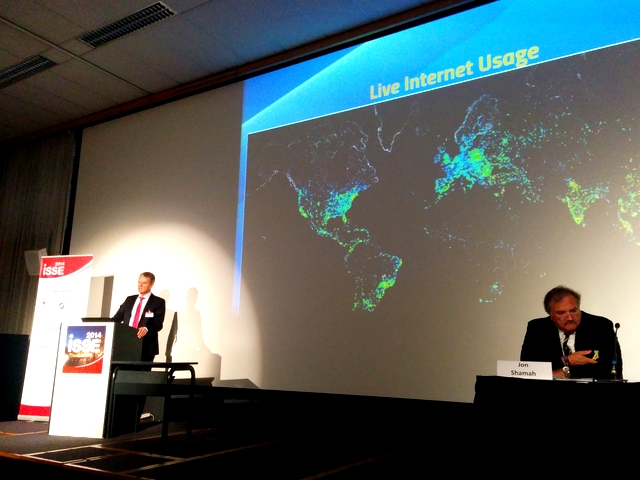
Wiper makes conversations more secure, offers on-demand chat deletion
Today, there is a messaging service for just about anything and anyone. The core features are pretty much the same across the board, however. Where they differ is mostly in the way those features are implemented. For instance, you can chat with others using any messaging app, but not all offer encrypted conversations or delete your messages after they're received. The devil is in the details, as always.
Despite all the different options available today, there is still room for new messaging services to make their mark. Wiper is among the new up and coming players, with its main highlights being the option to delete conversations everywhere, on-demand, and provide secure HD video chats.
![WhatsApp adds read receipts as messaging app celebrates fifth birthday [infographic]](https://betanews.com/wp-content/uploads/2014/11/whatsapp_birthday.jpg)
WhatsApp adds read receipts as it celebrates fifth birthday [infographic]
A new update has been rolled out to WhatsApp that lets users see when the person they are talking to reads a message. The check marks that appear next to messages to indicate that a message has been successfully sent and successfully delivered now have a third indicator mode. A double blue check mark means that the message has been read.
WhatsApp took the messaging world by storm when it first appeared on the scene. Despite having been found to be one of the most insecure messaging tools out there, it remains incredibly popular with around 600 million monthly users. WhatsApp's impact was such that Facebook parted with $19 billion to buy it, and this month the service celebrates its fifth birthday.

Electronic Frontier Foundation finds Skype, WhatsApp and more are disappointingly insecure
Secure communication is something we all crave online, particularly after Edward Snowden's NSA revelations increased public interest in privacy and security. With dozens of messaging tools to choose from, many claiming to be ultra-secure, it can be difficult to know which one to choose and which one to trust. Electronic Frontier Foundation (EFF) has published its Secure Messaging Scorecard which rates a number of apps and services according to the level of security they offer.
It's a fairly exhaustive list that includes numerous well-known names, as well as several more niche products. What is concerning, however, is that many of the most popular tools -- WhatsApp, Yahoo Messenger, Skype, SnapChat, and Facebook chat -- received very low ratings for failing to protect users and their communication data.

GCHQ's uncomfortable truth about the web: 'privacy has never been an absolute right'
The head of GCHQ, the UK's equivalent of the NSA, says that the Edward Snowden leaks have helped terrorist organizations such as ISIS who have taken to the web to spread propaganda. Writing in the Financial Times, Robert Hannigan points out that ISIS is the first terrorist group whose members have grown up on the internet. He says that the group has made use of "messaging and social media services such as Twitter, Facebook and WhatsApp, and a language their peers understand" and that the security tools that have popped up post-Snowden makes the work of GCHQ in tracking communication much harder.
This might not come as a surprise, but something else that Hannigan says is likely to raise eyebrows. His assertion that "privacy has never been an absolute right" goes against the grain of what many web users believe, but he suggests that the challenges facing governments and intelligence agencies in fighting back against terrorists can "only be met with greater co-operation from technology companies".

How health history is more valuable to hackers than your credit card information
A recent article stated that medical records could be sold for up to 20 times more than credit card information on the black market. There are various factors as to why consumers’ medical information has become so valuable. This article considers those factors as well as some precautions medical providers can take to better protect themselves against malicious threats.
The first thing that needs to be addressed is why hackers prefer to buy and sell medical records versus credit card information.

Revealed: the secret guide to encryption, hacking, and surveillance for governments
There is now great interest in the level of governmental interference that takes place into online activity. Edward Snowden told the world about what the NSA was up to and there are now numerous websites dealing with the revelation that he made. One such site is The Intercept, and it has just published the secret manuals that are supplied to governments who want to use a suite of specialist tools to monitor web users' activities.
Sub-titled "the hacking suite for governmental interception", RCS 9 (or Remote Control System) is a suite of tools from Hacking Team. The Italian security and surveillance company is responsible for providing hacking and monitoring guides and software to a list of countries including Colombia, Korea, Mexico, Nigeria, and Saudi Arabia. RCS itself is "a solution designed to evade encryption" -- the sort of encryption put in place by Google.

Facebook opens up to Tor users with new secure .onion address
For those who are concerned about their privacy post-Snowden, there are various ways to boost online privacy such as using the anonymizing Tor browser. Browsing the internet anonymously is something that scares the authorities -- there were reports just a couple of months ago that Comcast was threatening to cut off customers who chose to use Tor -- but now Facebook has opened up to the idea.
The social network -- often criticized for its own privacy policies -- has lifted its bans on using Tor, and has created a secure URL (https://facebookcorewwwi.onion/). This can be used to visit Facebook using any Tor-enabled browser and adds a few extra layers of protection for those looking to stay secure. While the idea of anonymity on Facebook may seem oxymoronic, there is a degree of logic.

Samaritans Radar puts Twitter users on suicide watch
We all go through difficult times, and it can often be hard to cope with what life throws at us. Whether you're going through a particularly tricky patch and feeling low, or you're struggling with depression, it can be helpful to know that there are people you can talk to. But reaching out to people can be hard and it often falls to friends to notice signs of someone in trouble so they can be there when required.
Everyone would like to think they would notice when a friend starts to post worrying messages online, but the sheer volume of content we all consume each day means that it is easy to miss something important. Suicide prevention charity, Samaritans, has launched a new online venture, Samaritans Radar, which monitors the Twitter feeds of those who sign up, looking out for "potentially worrying tweets".

Feedly kills URL shortener to improve speed, security, and privacy
Back in January feedly -- the RSS reader that tried to fill the gap left by the death of Google Reader -- introduced a URL shortener. At the time it was billed as a "captur[ing] analytics about how people are engaging with the content you are sharing". Ten months later, the news service realized that this could be seen as being overly intrusive and has killed the tool.
The original blog post that heralded the launch of feedly.com/e has been updated to reflect the fact that the shortener is no more. "With hindsight this was a bad idea. We focused too much on feedly's growth versus doing what is right for users and for the Web. Sorry".

Ello pockets $5.5 million, legally pledges to never feature ads
Out of nowhere, Ello exploded, ninja-style, into the public eye. The social network shot to fame after Facebook's real name policy sent many users scuttling off in search of a new home, and the spartan, "beautiful" (Ello's word, not mine) social network welcomed an influx of new users. In addition to the "use whatever name you want" philosophy, users were happy to find that Ello offered a completely ad-free experience.
Now the lack of ads has been enshrined in law. While pocketing $5.5 million in a new round of venture funding, Ello has converted to a State of Delaware Public Benefit Corporation (PBC). The social network vows to never show nor sell ads, and requires this commitment to transfer to any future owner, should the company be acquired.

5 essential tips for staying safe online
The security of the internet is an on-going concern. Whether you're online for fun, or you're conducting business, there are all manner of pitfalls you may encounter. Issues such as viruses and malware are now widely known about, but these are far from being the only security issues to concern yourself with. Security has been thrown into the limelight once again by high-profile stories like the Fappening, problems with SnapChat, concerns about the Whisper app, and the POODLE SSL 3.0 vulnerability.
A large proportion of companies and individuals are aware of the importance of anti-virus and anti-malware tools, firewalls and the like. Security tools are all well and good, but there's also a lot to be said in favor of changing online behaviors; it's something that the online community and businesses are increasingly coming to understand. Much of what this entails -- taking care about the personal information you share and educating yourself about services before you use them -- is common sense, but it bears repeating.

Investigation finds 'anonymous' Whisper app secretly tracks user location
Following all of the NSA revelations, mass surveillance has increased the general level of paranoia to be found online -- although it could be argued that not all surveillance is bad. With everyone on such high alert it's little wonder that an app that described itself as "an anonymous social network that allows people to express themselves" should be so popular. Whisper encourages users to embrace the supposed anonymity it offers and reveal secrets they would not otherwise feel comfortable sharing.
An investigation by the Guardian found that the app is tracking the location of its users -- even those who have opted out of such tracking. As a result of the Guardian's report, Whisper amended its terms of service and introduced a new privacy policy. But the revelations will cause concern to users of the service, who sent more than 2.5 million messages per day.

Why the government needs access to your data
We are in Brussels at the 27th annual Information Security Solutions Europe Conference (ISSE), one of Europe's largest gatherings of cyber security experts.
Troels Oerting of the Danish police gave a fascinating opening keynote defending the right of the police to use surveillance over the Internet. It certainly ruffled some feathers in Brussels, but here are some of the highlights so you can make up your own mind.

Tracking and tackling Ebola using mobile phone surveillance
Mention web or mobile surveillance, and you're sure to raise a few hackles. But the current Ebola outbreak is showing that the data collected from handsets can be extremely useful. The idea of tackling a disease with 'big data' gathered from mobile phones might seem a little odd, but it's actually an incredibly valuable source of information. Telecom firms such as Orange have been working with data scientists, using anonymized data gathered from phones to track population movement in regions affected by Ebola.
The BBC points out that even in relatively poor countries in Africa, mobile phone ownership is still high. Experts have been able to use this data to determine the best places to set up treatment centers, and it's an idea that has been pounced upon by the CDC.

Why hackers love the holiday season [Q&A]
Recent high profile security breaches involving retailers like Target and Neiman Marcus mean that people are increasingly aware they may be vulnerable when shopping online. Yet many don't fully understand the landscape that lies behind hacking and why it’s such a lucrative business.
With Christmas and its associated e-commerce peak fast approaching we spoke to Kelly Yee, Vice President of secure email provider Penango who has a wealth of security systems experience in both the public and private sectors. Here are her views on how hackers work and how we can guard against becoming victims over the holiday season.
